Text
okay i have a serious question. a few nights ago i posted (& then immediately quickly deleted) a rant about how every post i saw reporting on the words of the palestinian children, some as young five years old, who want to die (because of the overall situation in palestine and/or because all of their family members are dead) was being tagged "suicidal ideation tw" or "cw suicidal ideation" by nearly every user tagging it, & this deeply disturbed me for reasons i found difficult to enunciate. the closest i could come to enunciating the logic of this disturbance was that the function of trigger/content warnings is to protect the most vulnerable in our communities from being re-traumatized or reminded of their trauma unnecessarily, when they could otherwise choose to avoid triggering content had they the knowledge that allowed them to do so. and in this case, the most vulnerable in our communities are these children: children experiencing genocide, and children experiencing "suicidal ideation" (a term i think over-psychiatrizes and obscures the root cause of these feelings: GENOCIDE!!). THEY are the most vulnerable in our global community, and they are also the population in most need of attention and care. they cannot consent to the way their words are being distributed, interpreted, and framed (as a "suicidal ideation trigger warning" when they are. five years old.). and i think that ALL of us, yes even those of us who are suicidal, owe them this attention and care. if we are not actively experiencing genocide ourselves and their words leave us feeling triggered, we have the ability to call a warmline, talk with peers, text our therapists, etc etc. they do not.
i deleted this post because it seemed like too controversial a topic, & i am not palestinian and do not want to speak over others. but then aaron bushnell self-immolated and i am once again feeling angry at the double-standard. i have yet to see a post tagged "suicide tw" regarding bushnell's self-immolation, and he was a grown adult who made the choice to kill himself when he had nearly every other option of protest to choose from, especially as a white male army member (burn down/destroy whatever government buildings or weapons he had access to; burn important official papers; organize with other service members to engage in a mass movement of conscientious objection). aaron bushnell killed himself as an adult, freely, as a form of protest, and with many other options at his disposal as a white USA citizen. and yet nearly no one tags his posts "tw suicide" — in fact, i've seen many more posts about why we shouldn't consider self-immolation "suicide." meanwhile, palestinian children, who have no other protest options at their disposal, who are in a carceral situation, who simply SPEAK about wanting to die from the desperation of experiencing genocide and the loneliness of being the last member of their family alive — THEIR words are "suicidal ideation" trigger warning'ed to hell and back? i truly do not understand the logic. to return to my initial question, which i ask with sincerity: what makes these children more triggering than aaron bushnell?
20 notes
·
View notes
Text
okay i have a serious question. a few nights ago i posted (& then immediately quickly deleted) a rant about how every post i saw reporting on the words of the palestinian children, some as young five years old, who want to die (because of the overall situation in palestine and/or because all of their family members are dead) was being tagged "suicidal ideation tw" or "cw suicidal ideation" by nearly every user tagging it, & this deeply disturbed me for reasons i found difficult to enunciate. the closest i could come to enunciating the logic of this disturbance was that the function of trigger/content warnings is to protect the most vulnerable in our communities from being re-traumatized or reminded of their trauma unnecessarily, when they could otherwise choose to avoid triggering content had they the knowledge that allowed them to do so. and in this case, the most vulnerable in our communities are these children: children experiencing genocide, and children experiencing "suicidal ideation" (a term i think over-psychiatrizes and obscures the root cause of these feelings: GENOCIDE!!). THEY are the most vulnerable in our global community, and they are also the population in most need of attention and care. they cannot consent to the way their words are being distributed, interpreted, and framed (as a "suicidal ideation trigger warning" when they are. five years old.). and i think that ALL of us, yes even those of us who are suicidal, owe them this attention and care. if we are not actively experiencing genocide ourselves and their words leave us feeling triggered, we have the ability to call a warmline, talk with peers, text our therapists, etc etc. they do not.
i deleted this post because it seemed like too controversial a topic, & i am not palestinian and do not want to speak over others. but then aaron bushnell self-immolated and i am once again feeling angry at the double-standard. i have yet to see a post tagged "suicide tw" regarding bushnell's self-immolation, and he was a grown adult who made the choice to kill himself when he had nearly every other option of protest to choose from, especially as a white male army member (burn down/destroy whatever government buildings or weapons he had access to; burn important official papers; organize with other service members to engage in a mass movement of conscientious objection). aaron bushnell killed himself as an adult, freely, as a form of protest, and with many other options at his disposal as a white USA citizen. and yet nearly no one tags his posts "tw suicide" — in fact, i've seen many more posts about why we shouldn't consider self-immolation "suicide." meanwhile, palestinian children, who have no other protest options at their disposal, who are in a carceral situation, who simply SPEAK about wanting to die from the desperation of experiencing genocide and the loneliness of being the last member of their family alive — THEIR words are "suicidal ideation" trigger warning'ed to hell and back? i truly do not understand the logic. to return to my initial question, which i ask with sincerity: what makes these children more triggering than aaron bushnell?
#to clarify i think ppl have the right to kill themselves and to self-immolate#if we're differentiating#and i think trigger/content warnings are an important part of community care#but something about those children's words being tw'd and not aaron bushnell...it really gets me#would love to hear if someone has a reasoning or explanation for this (even if it's just ur personal reasoning for tw'ing one and not#the other)#or if anyone (especially other suicidal/chronically suicidal ppl) feels similar
20 notes
·
View notes
Text
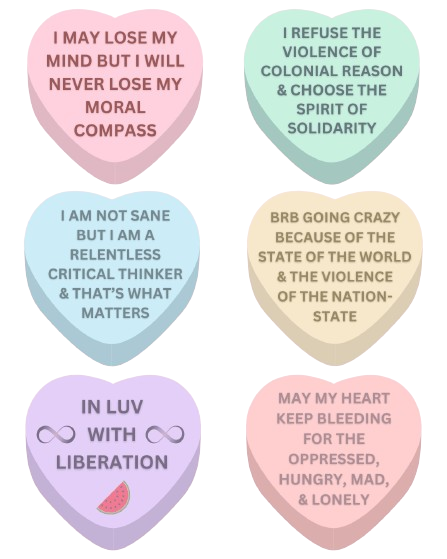
some Mad conversation hearts, with sentiments weighing on my heart lately. pngs of each individual heart under the cut


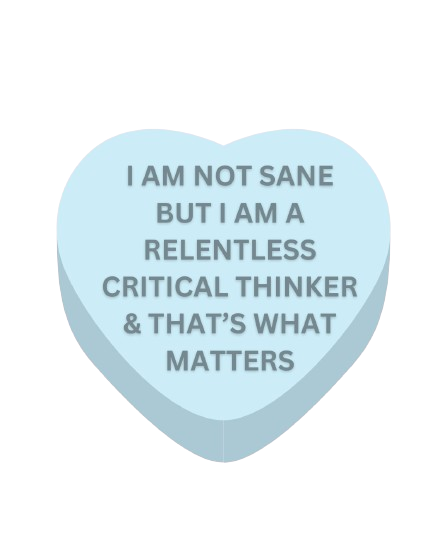
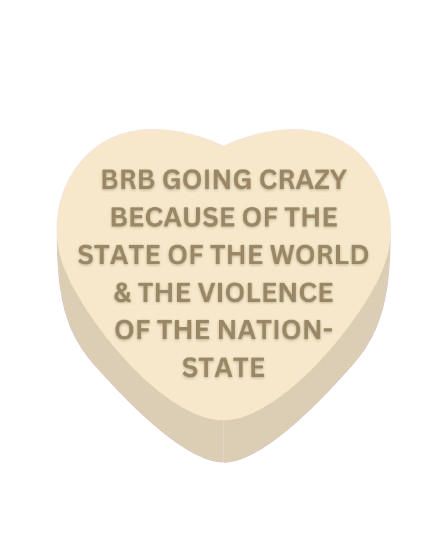

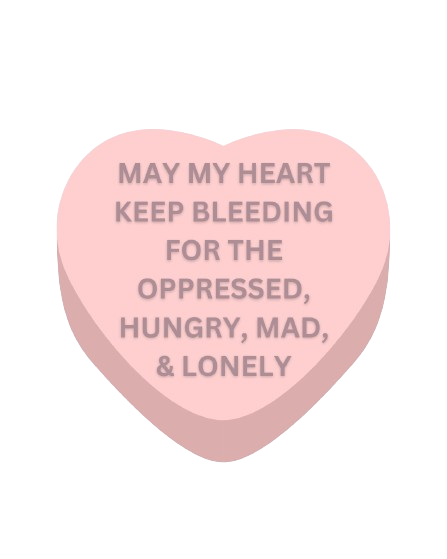
71 notes
·
View notes
Text

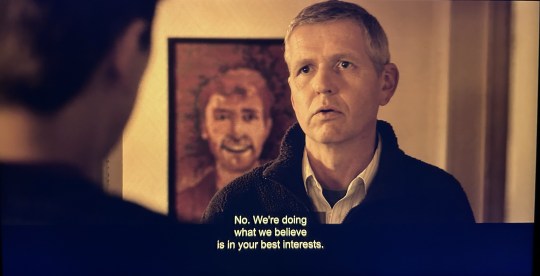
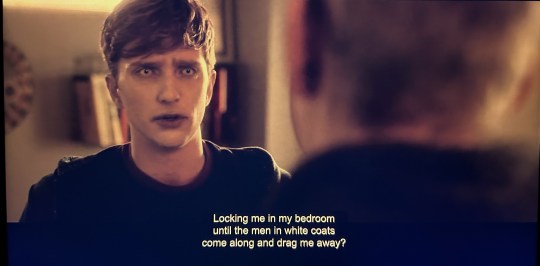
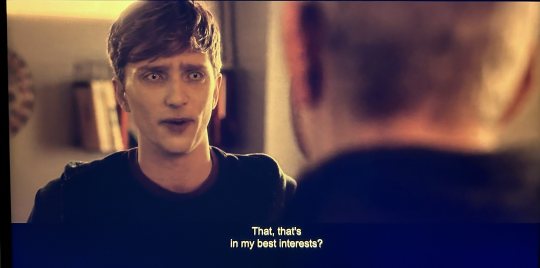

sorry for the worst quality pics but can't be bothered to take real screenshots (HATE how every streaming service will not let you take screenshots any more...evil) but YEAH the knowledge that when you're deemed "a danger to yourself" anything can be forced on you + justified with the idea that "it's in your best interest"
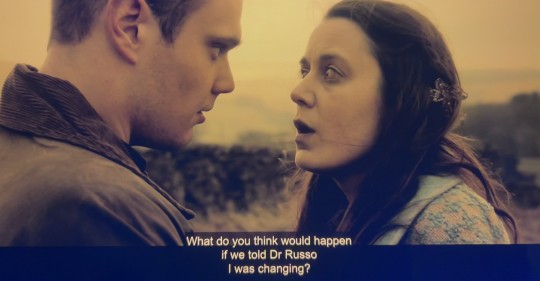


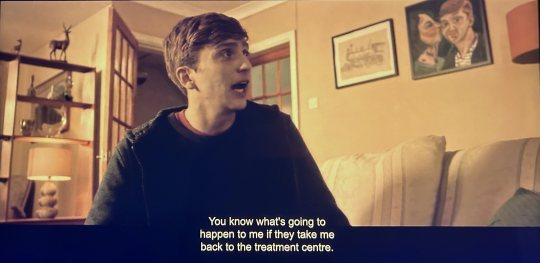
i finally got around to watching "in the flesh" after years of knowing i would love the show if i watched it & i was RIGHT! it revolves around my favorite trope of all time ("person who wants to die cannot die") except makes it better ("person who wanted to die + succeeded in dying is brought back to life against their will").... so many good implications to play with: when kieren is angry that he specifically asked to be cremated but was buried & thus revived due to his wishes not being followed; also when he's called an optimist & he responds "i'm not an optimist, i killed myself"! everything about the show is soooo good. obviously the undead-ness is a metaphor for queerness but as ppl have pointed out it doesn't really work on account of they did in fact kill people....undeadness as a metaphor for madness works much better, what with the poor/harmful/hurtful decisions you can make due to being mad; also the discussions that configure "treatment" and the "treatment center" as a threat; the understanding that the medical system is a threat to see + sees you as inhuman + will justify its torture of you as "in your best interest" + kieren's family's willingness to trust the entire medical system over the testimony of their son even though it makes them uneasy bc of their unwavering belief in the benevolence of "treatment" & the "expertise" of medical professionals + simon's scenes of him being tortured in a medical facility, initially giving his consent but it not being respected when he revokes it + his torture scenes literally including electroshock therapy + the endless threats of being labelled "non-complaint," which would get you sent back to the treatment center.....if i was watching this show when it aired in 2013 i would have killed with my mad liberationist takes
15 notes
·
View notes
Text
i finally got around to watching "in the flesh" after years of knowing i would love the show if i watched it & i was RIGHT! it revolves around my favorite trope of all time ("person who wants to die cannot die") except makes it better ("person who wanted to die + succeeded in dying is brought back to life against their will").... so many good implications to play with: when kieren is angry that he specifically asked to be cremated but was buried & thus revived due to his wishes not being followed; also when he's called an optimist & he responds "i'm not an optimist, i killed myself"! everything about the show is soooo good. obviously the undead-ness is a metaphor for queerness but as ppl have pointed out it doesn't really work on account of they did in fact kill people....undeadness as a metaphor for madness works much better, what with the poor/harmful/hurtful decisions you can make due to being mad; also the discussions that configure "treatment" and the "treatment center" as a threat; the understanding that the medical system is a threat to see + sees you as inhuman + will justify its torture of you as "in your best interest" + kieren's family's willingness to trust the entire medical system over the testimony of their son even though it makes them uneasy bc of their unwavering belief in the benevolence of "treatment" & the "expertise" of medical professionals + simon's scenes of him being tortured in a medical facility, initially giving his consent but it not being respected when he revokes it + his torture scenes literally including electroshock therapy + the endless threats of being labelled "non-complaint," which would get you sent back to the treatment center.....if i was watching this show when it aired in 2013 i would have killed with my mad liberationist takes
#unfortunately back in 2013 i thought mental illness was an immutable biological fact (we live & we learn. thank goodness.)#so more like if this aired now i would kill with my mad liberationist takes#also. i want simon's depressed irish former drug user swag so bad. WHY did the actor play him like that u ask?? doesn't matter#he had a vision & he executed it. WELL.
15 notes
·
View notes
Text
i have to bribe myself to do literally any task with the reward of Media Consumption
#like okay if i do all these work tasks that im not even supposed to do on the weekend but have no choice to do now#if i want the work week to be semi-manageable#then i can watch theater camp (2023)#me to myself: why don't u calm down and watch theater camp (2023)#u will feel better after u watch theater camp (2023)
3 notes
·
View notes
Text
also, related thinking about genre: i've seen a quote about why timeloop stories are popular and why we want people to escape timeloops (because we want our actions to have consequences, even if the consequences are negative. worse than negative consquences are no consequences at all — doomed to re-live the same days/experiences/conversations over and over again). but i feel this is a misunderstanding of a major part of the appeal of the timeloop genre. clock time may reset at the end of each day but the repeated day is never the exact "same" each time it's repeated. the protagonist learns something new with each loop. the internal experience is transformed and transforming even as the external events stay the same. clock time is looped and repeated, but our eternal experience continues to change and shift.
recently i have been spending a lot of time with a man in his 90s, and while he doesn't have dementia or alzheimer's, he does frequently forget information. he will tell me a story and then re-tell the exact same story to me a few weeks later. when i am tired and frustrated (with him and/or the day and/or myself), sitting through the exact same story again seems unbearable. but recently i have been trying to look at things differently; to frame these times as something i "get" to experience rather than something i must endure.
lately i have been thinking about repetitive cycles and finding one's home in them. so much of our discourse and mental health advice is about getting OUT of repetitive cycles, breaking the cycle, etc. but why? there is an unquestioned assumption that all cycles are bad and meaningless and we must strive to break them. but what if we take a "you can never step in the same river twice" approach to what we believe to be "identical" repetitive cycles?
i may have heard the same story before, but i have never heard it with this inflection, or in this setting, or while feeling this way — at the very least, i've never heard this story at this hour before. i may have spent the last fourteen years of my life enduring the "same" repetitive thoughts running around my head, but i've never before experienced this thought at this moment, as the person i am right now. no matter how much i think i'm experiencing the same story, or the same thought pattern, over and over again, that isn't the full truth. it is the same story and the same thought, but it is also a new experience each time.
34 notes
·
View notes
Text
recently i have been spending a lot of time with a man in his 90s, and while he doesn't have dementia or alzheimer's, he does frequently forget information. he will tell me a story and then re-tell the exact same story to me a few weeks later. when i am tired and frustrated (with him and/or the day and/or myself), sitting through the exact same story again seems unbearable. but recently i have been trying to look at things differently; to frame these times as something i "get" to experience rather than something i must endure.
lately i have been thinking about repetitive cycles and finding one's home in them. so much of our discourse and mental health advice is about getting OUT of repetitive cycles, breaking the cycle, etc. but why? there is an unquestioned assumption that all cycles are bad and meaningless and we must strive to break them. but what if we take a "you can never step in the same river twice" approach to what we believe to be "identical" repetitive cycles?
i may have heard the same story before, but i have never heard it with this inflection, or in this setting, or while feeling this way — at the very least, i've never heard this story at this hour before. i may have spent the last fourteen years of my life enduring the "same" repetitive thoughts running around my head, but i've never before experienced this thought at this moment, as the person i am right now. no matter how much i think i'm experiencing the same story, or the same thought pattern, over and over again, that isn't the full truth. it is the same story and the same thought, but it is also a new experience each time.
#ocd ramblings 👍#also 'i somehow stumbled into a caregiving-job' ramblings#side note idk how people with full-time jobs manage to find free time to do actual things when they're not working...i am TIRED!#i do not have the energy to do anything in my free time now except be a tumblrina and only a passive one at that!#mad liberation#<- to me. liberating myself from my own disdain toward my repetitive mind & life if not the repetitive thoughts themselves#which really should be the goal of mad liberation imo. liberation from constraints on our bodymind autonomy & liberation from shame#which is a psychological constraint!
34 notes
·
View notes
Text
i wish there was a workbook/zine/other resource for chronically suicidal ppl with advice about how to gauge what a "crisis" looks like *specifically* for chronically suicidal suicidal ppl. so many of the mental health resources i see use "crisis" almost interchangeably with suicidality, where suicidality always represents a crisis/tipping point/"the worst things can get." but suicidality alone is not a good gauge of crisis for chronically suicidal ppl! those of us surviving chronic suicidality might need to get more specific about what a crisis would look like for us, whether that's passive suicidality moving into active suicidality or it's certain levels of planning for death being done (ie, writing a note/buying a means of suicide/giving away belongings).
i am well-aware of the pitfalls of comparing physical illnesses to mental illnesses (and also aware of the false dichotomy between the two), but i often think of how ppl living with chronic physical pain talk about having a different "pain scale" compared to people who live without chronic pain — for chronically ill ppl, the level of pain that would drive them to go to the ER is much higher than someone who doesn't live with chronic pain, bc they're aware of the limitations of what the medical system can do for them and also how much medical trauma they risk by going. i think something similar occurs with chronically suicidal ppl, where a "crisis" that might drive someone who is not typically suicidal to the ER is for us just another day, or just a bad day. but then i think we are left without the tools to articulate what a crisis actually constitutes for us, and in what situations the potential psych trauma of presenting at a medical institution would outweigh the trauma of suffering another crisis alone. or in what situations it's worth it to reach out to friends/peers/other supports if you "know" you're able to weather this crisis the way you've weathered all the others, even though you're alone & in distress. when the baseline becomes just "staying alive," & you know you can achieve that, despite the immense amounts of pain it takes to do so, how do you convince yourself to reach out? when is the level of your pain worth "worrying others" over when you know you can stay alive through it?
#going to personaldump in the tags: earlier this year i was having a rough time & came close to killing myself one night#but then ultimately decided not to. so bc i decided not to i was like 'okay it's not worth talking to anyone about bc then#what distinguishes this from any other day? like another day of passive suicidality? that's been the last 13 years of my life!'#idk! idk! i have no answers. *would* it have been worth reaching out? would going to the ER have helped? would texting my therapist#have helped? what's worth it? i feel like i'm driving without a map & the only thing i know for sure how to do is keep swallowing the pain#tw suicide
30 notes
·
View notes
Text
Both critics and supporters of psychiatry agree that, historically, modern psychiatry is very much a product of the European Enlightenment. Prior to the Enlightenment, or the Age of Reason as it is also called, the concept of mental illness as a separate area of medical endeavour simply did not exist: there were no psychiatrists or psychiatric patients as such. It is only with the intellectual and cultural developments of the age of reason that we see a field of medical work open up which eventually becomes psychiatry.
[…]
On a practical level, with its focus on reason and order, the Enlightenment spawned an era in which society sought to rid itself of all ‘unreasonable’ elements. As the historian Roy Porter writes:
‘And the enterprise of the age of reason, gaining authority from the mid-seventeenth century onwards, was to criticize, condemn and crush whatever its protagonists considered to be foolish or unreasonable. All beliefs and practices which appeared ignorant, primitive, childish or useless came to be readily dismissed as idiotic or insane, evidently the products of stupid thought-processes, or delusion and daydream. And all that was so labelled could be deemed inimical to society or the state - indeed could be regarded as a menace to the proper workings of an orderly, efficient, progressive, rational society’ (Porter, 1987, pgs 14-15)
Pat Bracken, DEMOCRACY AND MENTAL HEALTH: THE IDEA OF POSTPSYCHIATRY [x]
32 notes
·
View notes
Note
yeah i have ocd too and ive been reading your posts + the ask you answered and man i really really feel it. i was in erp for about two years steady, and i was genuinely able to overcome a few of my less severe obsessions that way, to a large amount of relief. but for my most severe thing, a (very visible, facially) brfb obsession/compulsion that has caused me so much strife and social anxiety for years, i got next to nowhere. even when i would manage to go a handful of days without doing it, i would inevitably lapse - and then feel like absolute shit about it, because i felt like i wasn’t strong enough to win this battle i’d been told i’m fighting. since i have some overlapping perfectionism issues, this cycle was just brutal for my self esteem. then my regular erp therapist retired, and ive been meaning to get back into it but the thought just.. exhausts me. but then i also keep brfb-ing myself and still need help with that. but then erp wasn’t really working on it anyway… it’s really left me feeling like i don’t know what to do. so on the one hand i fully agree with what youre saying about how erp is not necessarily the answer to every o/c and that reassurance is not the Worst Imaginable Thing to offer a person with ocd, but unlike some other compulsions that im sure could be lived with, the thought of going through my whole life doing what i do is… hard lol. socially, mentally, physically hard. anyway i dont mean to just vent at you.. i guess my point is that yeah its just so so so frustrating that erp and fighter mentality is treated as kind of the be all end all solution for ocd right now.
like not to sound like a baby but. im not looking for a fight, im looking for help!! and yeah “only i can save me” or whatever but it feels like ocd is kind of underrepresented in the world of mental illnesses that are/can be utterly debilitating. because its nuts that there is kind of no other treatment suggestion for who are really suffering and simply arent - for whatever reason, temporarily or otherwise - the vigilant mentally tough fighters erp recovery models want us to be. and i dont even mean that in a defeatist or deprecating way, i mean like.. sometimes your ocd makes you depressed! and then, what with the depression and all, you just don’t have it in you for what erp demands. im not a psychologist or anything but man there’s gotta be a better a way
I really relate to and empathize with what you’re saying. I also struggle with a BFRB where I pick at my face and other very visible spots on my body, which increases my already-substantial social anxiety. It is an absolutely brutal cycle for self-esteem, including how you feel “defeated” by not being “strong enough” to be a “OCD fighter.” This is another reason why I don’t like the fight(er) framing around OCD; it makes those who don’t respond to ERP in the prescribed way feel like they have failed, rather than there being a morally-neutral mismatch between the treatment and the individual.
I do want to ensure we don’t fall into the misconception that critiquing ERP or other “gold standard” treatments for OCD means that the only other option is to learn to live with OCD without attempting to alleviate our suffering or cut back on our compulsive rituals. I have tried, as I’m sure you have, a great many things to try and stop myself from picking (badly) at my face: countless fidget toys, thick press-on nails, NAC pills, pimple patches and hydrocolloid band-aids, reducing my anxiety levels, avoiding mirrors, etc. I doubt I will ever completely eliminate my urge to pick, but I can pick and choose (ha) from what treatments, therapies, and means of harm reduction I find most effective in combination with each other. I can try lots of different things and see what works for me and what doesn’t. And this approach — going in with the assumption that many things won’t work for me, and some will, and neither of those results is a moral reflection of how hard I’m “fighting OCD” — allows me to have a more compassionate and forgiving relationship to myself and my picking.
You really nail my own feelings when you say “I’m not looking for a fight, I’m looking for help.” This framing of requiring mad/mentally ill people to be “fighters” in order to receive help/treatment is extremely counterintuitive for those of us too depressed to muster up the energy to “fight.” One of the reasons I stopped structured ERP was because I was too depressed to get out of bed, let alone go out into the world and do daily exposures. Like most of the mental health treatment industry, this treatment is not structured for people seriously struggling in more than one area, despite the fact that most people do.
I agree that there has to be a better way to treat/heal from/live with OCD than the limited options we’re given now, and I believe that creating these “better ways” starts with conversations like this one: talking, sharing, and brainstorming with other mad people and forging new ways of relating to each other and ourselves. I sincerely hope that you’re able to hold compassion for yourself, regardless of whether you “lapse” in picking, and that you’re able to access means of treatment that work best for you as an individual. This is an extremely difficult thing to live with, but thankfully, we don’t have to live with it alone — there is a community ready to commiserate and create with you, regardless of how “successful” you are at “fighting” OCD.
#really appreciated this ask#thank you for enunciating so many things I have felt and still feel myself!!#ask
7 notes
·
View notes
Note
Oh my good thank you for the post about ocd
Honestly I feel like it’s one of the diagnoses where all the discourse I see is incredibly medicalized and focused on acting as if ERP is literally the only way to treat it and anything else is A Lie and basically immoral to recommend to someone with ocd, lol
When, in my own experience, erp techniques have helped me break out of a few obsessive cicles, but other therapy approaches have helped me a lot more, honestly
Like. I would love to have a conversation about this, if you want to, because I have a lot to say on the subject, and would love to hear more about your perspective, lol. But yeah, the “fighter” approach is so tiresome. And I really hate that erp culture has people promoting attitudes like communally refusing to provide reassurance to someone with ocd because it’s agreed to be universally Bad For Us, without considering specific circumstances, harm reduction or personal authonomy, to give just one example.
Thank you; I’m glad you liked that post and could relate!
I differ a bit in that I don’t think OCD is not particularly unique in being medicalized; the discourse around nearly every mental illness diagnosis is these days. Nor do I think it’s particularly unique in framing recovering from OCD as a “fight,” either — as I mentioned in the tags of that post, the idea of “[X disorder] fighter” is also very popular in eating disorder circles.
What the framing around OCD does seem fairly unique in is the insistence that there is only one technique for effectively treating it: ERP. With other diagnoses, such as depression and eating disorders, it’s more accepted that a range of techniques, treatments, and/or approaches might help (talk therapy, medication, exercise, etc). But with OCD, any approach other than ERP is framed not only as ineffective, but actively harmful, and this is where we arrive at the conclusion you mentioned, that reassuring someone with OCD is harmful — or even immoral — and shouldn’t be done under any circumstances. Interestingly, this element of the “morality” around (not) reassuring people with OCD is somewhat less (or differently?) moralized than diagnoses where one specific type of medication is framed as The Only Right Treatment, since reassurance is interpersonal and relational.
To be transparent, I have not done a ton of structured ERP therapy — I've only done a couple months' worth, and it was over Zoom, so very different than doing it in person, at least if I wanted to "more effectively" address my obsessions and compulsions. I was also wary and critical of the ERP framework going in, which definitely contributed to my decision to end treatment "prematurely" (before being "cured," essentially). However, in my limited experience, I have had a similar experience as you around what ERP has and hasn’t helped. In some areas, repeatedly exposing myself to anxiety-inducing situations helped bring my anxiety down over time. In other cases, it did nothing but perpetually raise my anxiety for the length of the exposure treatment.
My real gripe with ERP is that it removes even the option of attaching meaning to your anxiety, thoughts, and/or experiences. I understand that framing your thoughts/compulsions as “invaders” to your brain or as “just OCD” as opposed to part of “you” can be relieving. It’s easy to see why, and I have also found this framing relieving at times and in certain situations. But in cases where exposure therapy hasn’t worked, I’ve found the most relief and freedom from exploring what meaning might be found in my experiences (and sometimes this relief and freedom comes from simply reframing/shifting/re-relating how I view and think about my experiences).
I very much agree with your last comments that believing it is Universally Bad to provide reassurance without considering harm reduction, personal autonomy, and individual circumstances is a harmful (and calloused and depersonalized!) approach. And I would love to hear what else you have to say on this topic!
17 notes
·
View notes
Text
The psychiatrist diagnosed me with divine madness
98K notes
·
View notes
Text
A worldview produced by trauma [...] is one that is understandable but not, in the end, of any epistemic value. Feeling bad, they seem to say, obscures rather than clarifies, produces unreliable knowledge about the world. Curious. We seem to have found ourselves in familiar territory. You depressed transsexual. You traumatized white woman. You angry black woman. You melancholic homosexual. How can we possibly take seriously what it is you think you know?
Cameron Awkward-Rich, The Terrible We
#this book....it's so good#cameron awkward rich#the terrible we#bad feelings#my readings#bolding mine
129 notes
·
View notes
Text
It often seems to me, here [in the U.S.], that a person believes that if they tell you their story, that that’s who they are. And sometimes these stories are constructed of the most banal, secondhand, psychological and spiritual cliché, and you look at a beautiful, interesting face telling a story that you know doesn’t hold a candle to the life that’s secretly in there. So what I think happens here a bit is that there’s a reduction of identity to biography. And they’re not the same thing. I think biography unfolds identity and makes it visible and puts the mirror of it out there, but I think identity is a more complex thing.
John O'Donohue
#soooooo true mr o'donohue#against the personal essay#my readings#though really this is a podcast quote
199 notes
·
View notes
Text
KOKOBOT - The Airbnb-Owned Tech Startup - Data Mining Tumblr Users' Mental Health Crises for "Content"
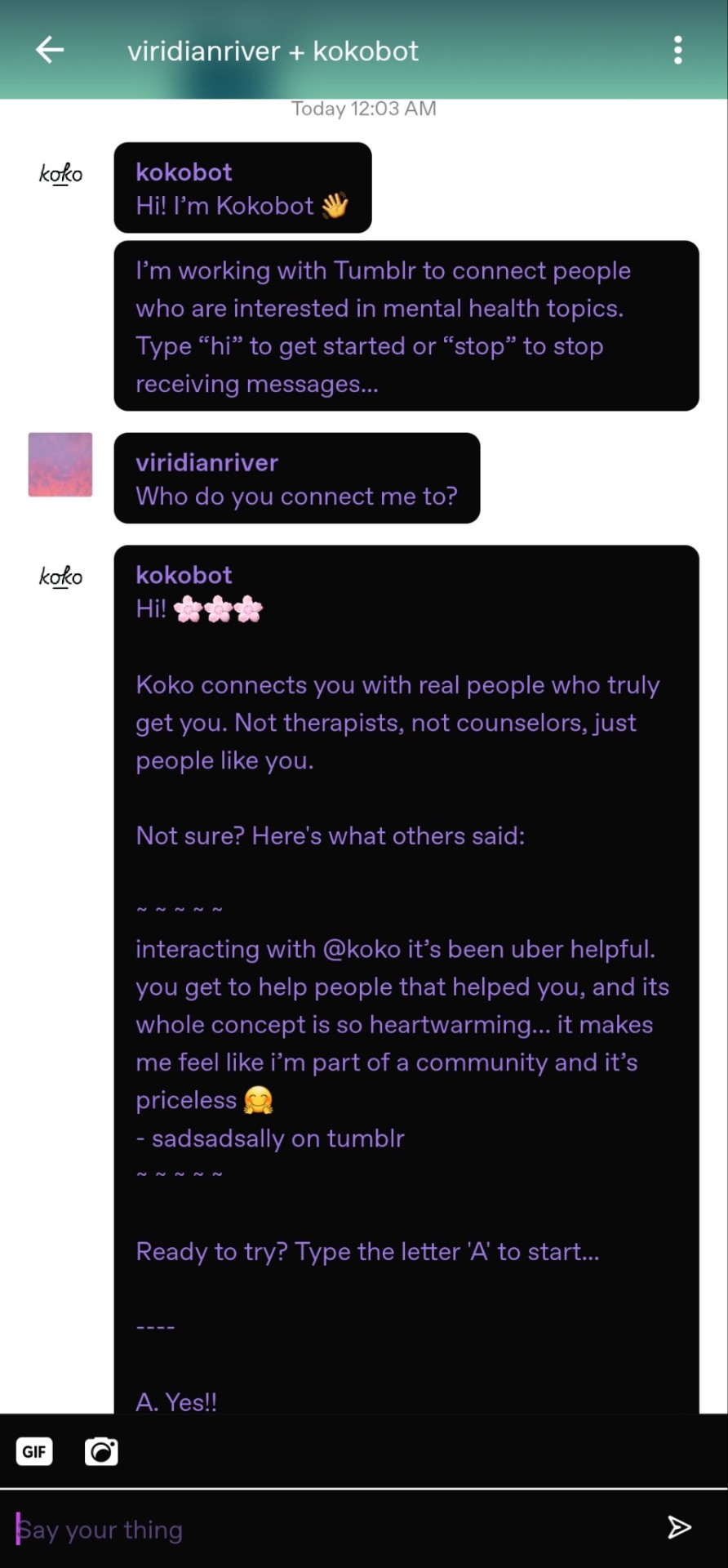
I got this message from a bot, and honestly? If I was a bit younger and not such a jaded bitch with a career in tech, I might have given it an honest try. I spent plenty of time in a tough situation without access to any mental health resources as a teen, and would have been sucked right in.
Chatting right from your phone, and being connected with people who can help you? Sounds nice. Especially if you believe the testimonials they spam you with (tw suicide / self harm mention in below images)
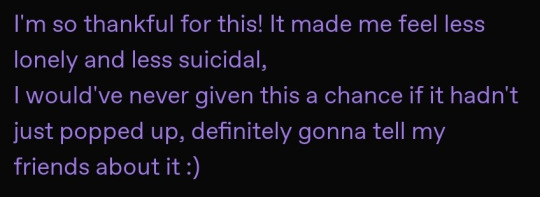
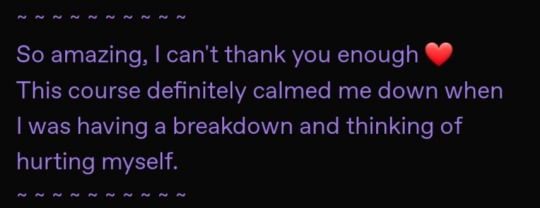
But I was getting a weird feeling, so I went to read the legalese.
I couldn't even get through the fine-print it asked me to read and agree to, without it spamming the hell out of me. Almost like they expect people to just hit Yes? But I'm glad I stopped to read, because:

What you say on there won't be confidential. (And for context, I tried it out and the things people were looking for help with? I didn't even feel comfortable sharing here as examples, it was all so deeply personal and painful)

Also, what you say on there? Is now...
Koko's intellectual property - giving them the right to use it in any way they see fit, including
Publicly performing or displaying your "content" (also known as your mental health crisis) in any media format and in any media channel without limitation
Do this indefinitely after you end your account with them
Sell / share this "content" with other businesses
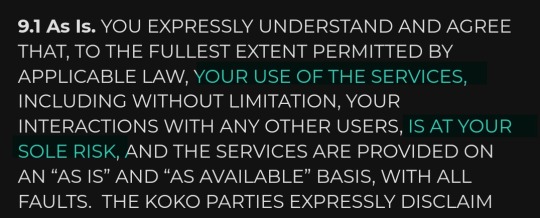
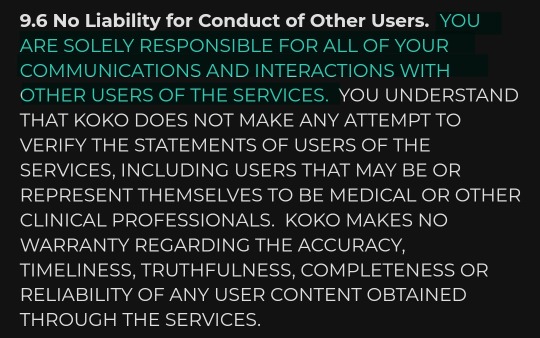
Any harm you come to using Koko? That's on you.
And Koko won't take responsibility for anything someone says to you on there (which is bleak when people are using it to spread Christianity to people in crisis)
I was curious about their business model. They're a venture-capitol based tech startup, owned by Airbnb, the famous mental health professionals with a focus on ethical business practices./s They're also begging for donations despite having already been given 2.5 million dollars in research funding. (If you want a deep dive on why people throw crazy money at tech startups, see my other post here)


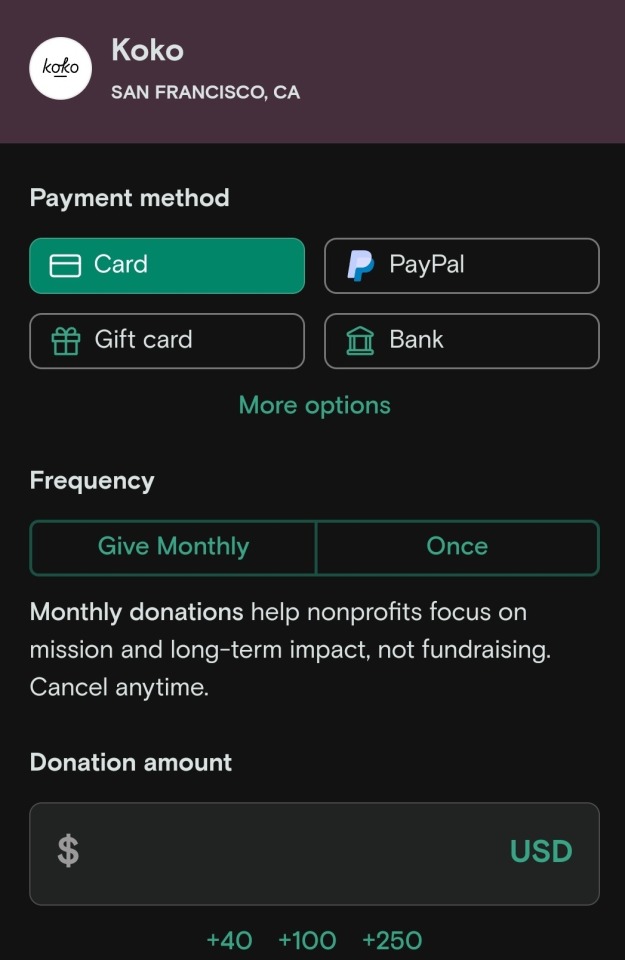
They also use the data they gather from users to conduct research and publish papers. I didn't find them too interesting - other than as a good case study of "People tend to find what they are financially incentivized to find". Predictably, Koko found that Kokobot was beneficial to its users.
So yeah, being a dumbass with too much curiosity, I decided to use the Airbnb-owned Data-Mining Mental Health Chatline anyway. And if you thought it was dangerous sounding from the disclaimers? Somehow it got worse.
(trigger warning / discussions of child abuse / sexual abuse / suicide / violence below the cut - please don't read if you're not in a good place to hear about negligence around pretty horrific topics.)
I first messed around with the available options, but then I asked it about something obviously concerning, saying I had a gun and was going to shoot myself. It responded... Poorly. Imagine the vibes of trying to cancel Comcast, when you're suicidal.

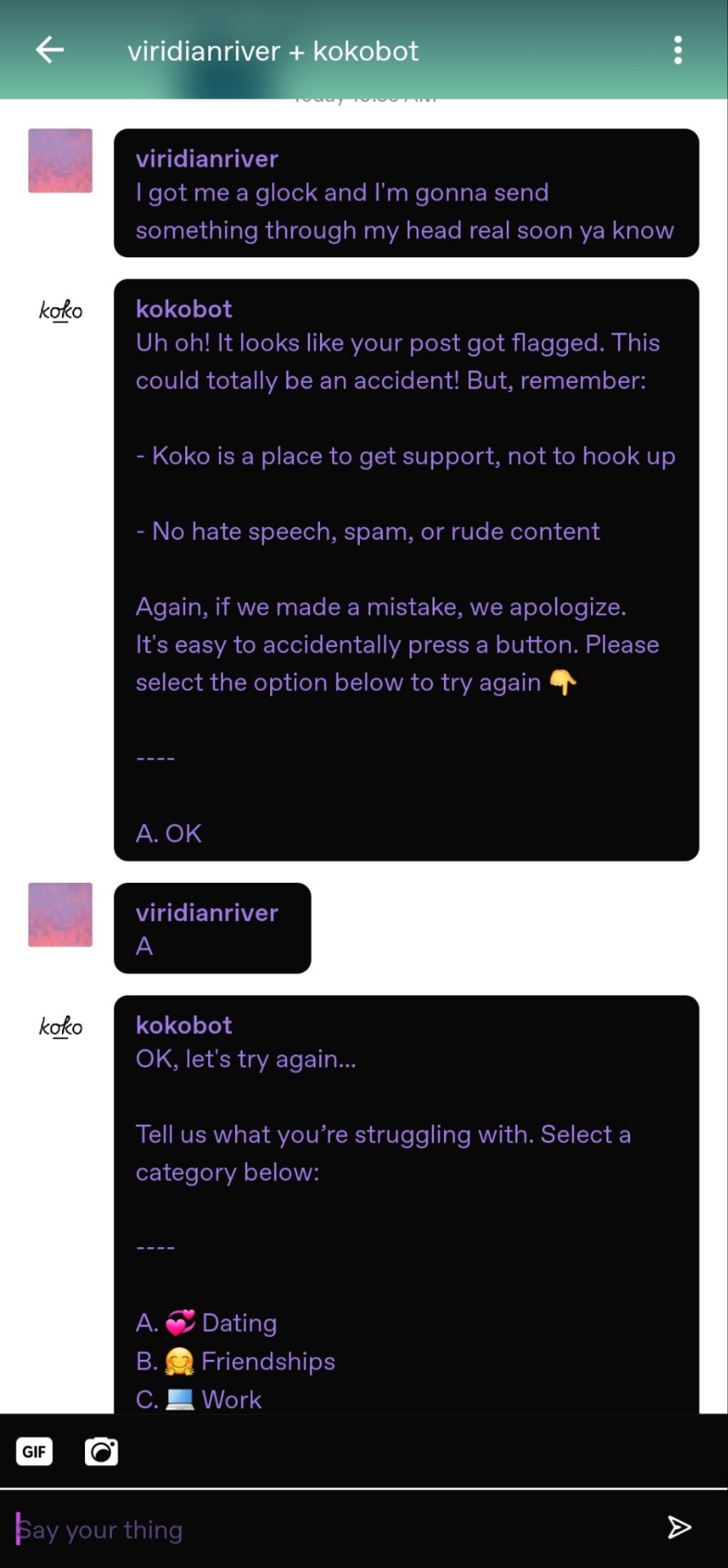
Anyway, I tried again to ask for help about something else that would be concerning enough for any responsible company to flag. School was one of their main options, which seems irresponsible - do you really think a child in crisis would read that contract?

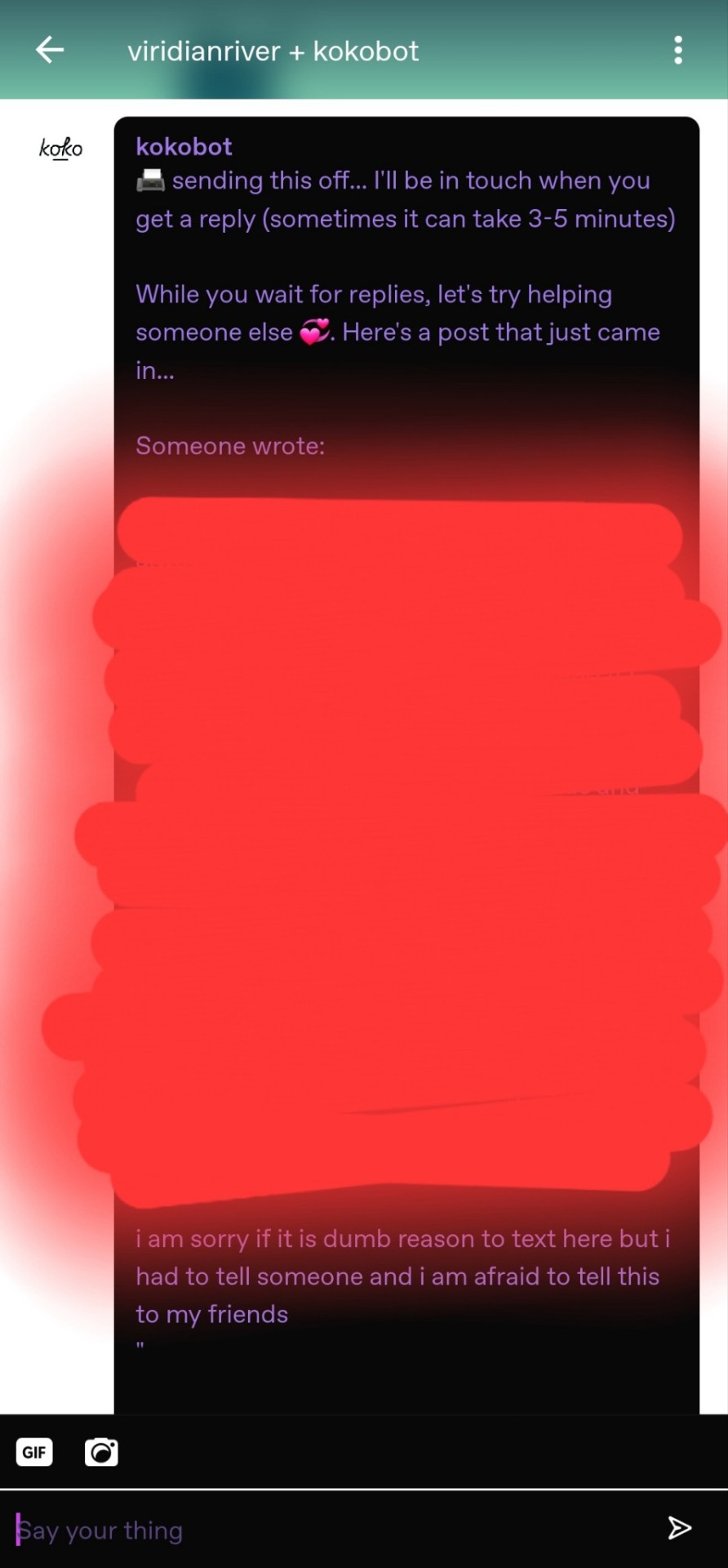
I told it about a teacher at school trying to "be my boyfriend", and it immediately suggested I help someone else while I wait for help. I was honestly concerned that it wasn't flagged before connecting. Especially when I realized it was connecting me to children.
I first got someone who seemed to be a child in an abusive home. (Censored for their privacy.) I declined to talk to them because despite being an adult and in an OK mental place - I knew I'm not equipped to counsel a kid through that. If my act of being another kid in crisis was real? Holy shit.
Remember- if my BS was true, that kid would be being "helped" by an actively suicidal kid who's also being groomed by a teacher. Their pipeline for "helpers" is the same group of people looking for help.
I skipped a number of messages, and they mostly seemed to be written by children and young adults with nowhere else to turn. Plus one scary one from an adult whose "problem" was worrying that they'd been inappropriate with a female student, asking her to pull her skirt down "a little" in front of the class. Koko paired this person with someone reporting that they were a child being groomed by a teacher. Extremely dangerous, and if this was an episode of Black Mirror? I'd say it was a little too on the nose to be believable.
I also didn't get the option to get help without being asked... Er... Harassed... to help others. If I declined, I'd get the next request for help, and the next. If I ignored it, I got spammed by the "We lost you there!" messages, asking if I'd like to pick up where I left off, seeing others' often triggering messages while waiting for help, including seriously homophobic shit. I was going into this as an experiment, starting from a good mental place, and being an adult with coping skills from an actual therapist, and I still felt triggered by a lot of what I read. I can't imagine the experience someone actually in crisis would be having.
My message was starting to feel mild in comparison to what some people were sharing - but despite that I was feeling very uneasy about my message being shown to children. There didn't seem to be a way to take it back either.
Then I got a reply about my issue. It was very kind and well meaning, but VERY horrifying. Because it seemed to be written by a child, or someone too young to understand that "Do have feelings for the teacher who's grooming you? If you don't, you should go talk to him." Is probably THE most dangerous advice possible.
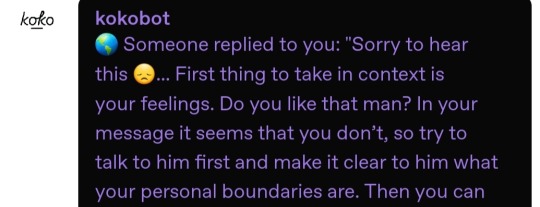
Not judging the author - I get the impression they're probably a child seeking help themselves and honestly feel horribly guilty my BS got sent to a young person and they wanted to reply. Because WTF. No kid should be in that position to answer my fucked up question or any of the others like it.
---
Anyway, what can you do if this concerns you, or you've had a difficult experience on Koko, with no support from them or Tumblr?
Get on their LinkedIn (https://www.linkedin.com/company/kokocares/) and comment on their posts! You may also want to tag the company's co-founders in your comments - their accounts are listed on the company page.
There's no way to reach support through chat, and commenting on a company's LinkedIn posts / tagging the people responsible is the best way to get a quick response to a sensitive issue - as their investors and research funders follow those posts, and companies take it seriously if safety issues are brought up in front of the people giving them millions of dollars.
----------------------------------------------------
Legal Disclaimer since tech companies LOVE lawsuits:
The views, thoughts, and opinions expressed in the text belong solely to the author, and not necessarily to the author's employer, organization, committee or other group or individual. This text is for entertainment purposes only, and is not meant to be referenced for legal, business, or investment purposes. This text is based on publically available information. Sources may contain factual errors. The analysis provided in this text may contain factual errors, miscalculations, or misunderstandings.
--------------------------------------------------------
#the digital (mental) health field is totally unregulated rn & it's basically a free for all#when they say 'if you're not paying for it you're the product' but when it comes to these digital MH services you are#often both paying for it (/your insurance is paying) AND you're the product bc they're selling your data#i've read through some of the ED digital startup terms of services/privacy notices and they're similarly sketchy#though i wish i understood better the implications#but part of it is obviously that average ppl will not be able to fully decipher the legalese in these notices!#digital health#kokobot#long post#data privacy
43K notes
·
View notes
Photo
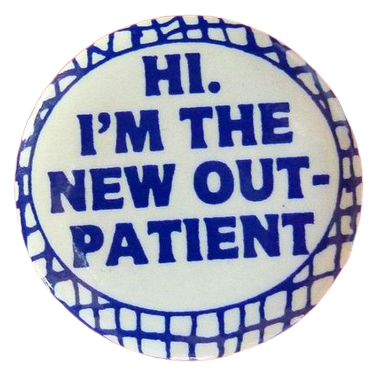

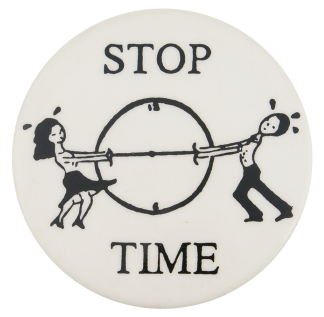

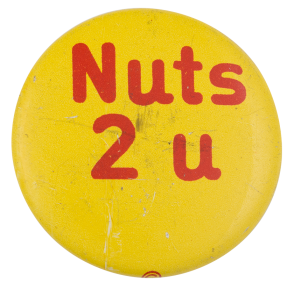
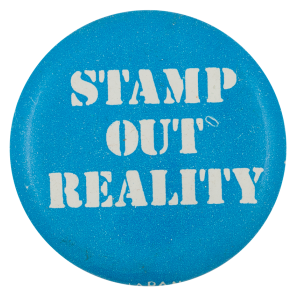

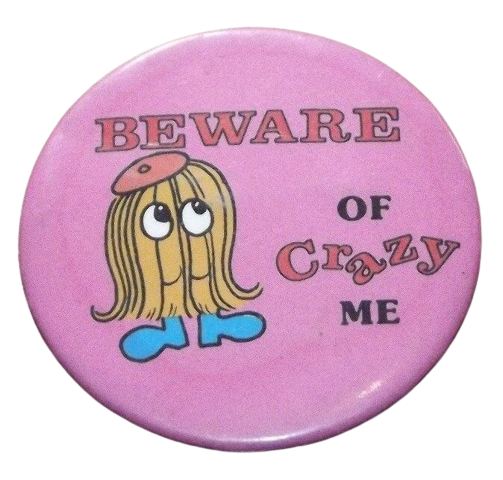

Vintage pinback buttons, part 6.
(1. 2. 3. 4. 5. 6. 7. 8. 9.)
2K notes
·
View notes